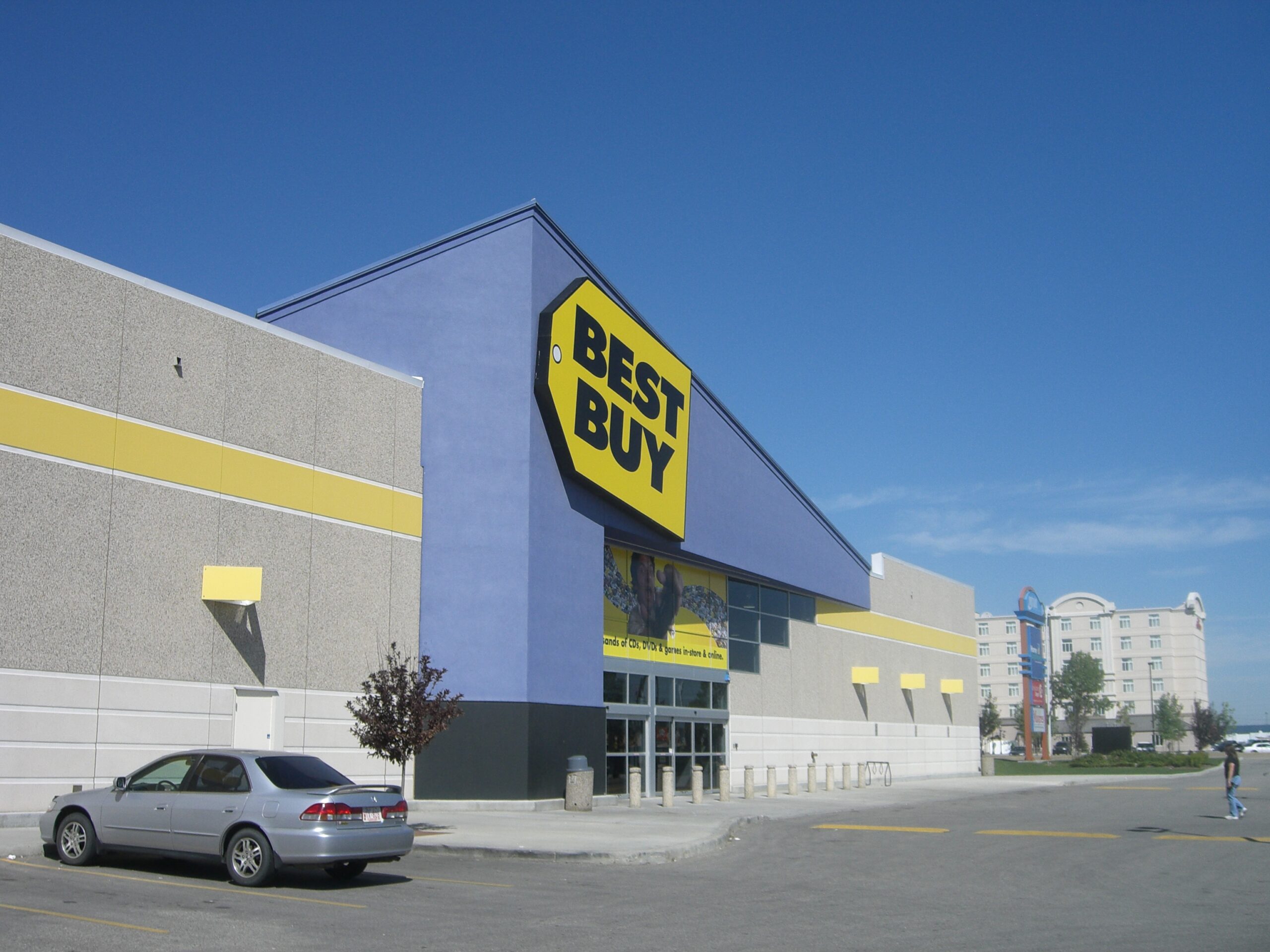During a recent hailstorm accompanied by heavy rain, I noticed water overflowing from my gutters and onto my deck below. It was clear that my gutters were full of pine needles and shingle grit knocked off by the hail, clogging the gutters and causing them to overflow. Since this was not the first time this had happened, the event convinced me to consider getting gutter protection. As my wife and I researched gutter protection companies in our area, it became clear that all the companies used very descriptive and similar names, making it very hard to remember who we had contacted for a quote. Here are just some of the names we saw:
- Leaf Filter
- Leaf Guard
- Gutter Guard
- My Gutter Guard
- Gutter Guards
- Gutter Helmet
The gutter protection industry is clearly not the only industry that suffers from a common branding-related issue. The issue is one that I frequently share with my clients and is the subject of this post.
Many of my clients hold a common belief that their company name alone can create the gravitational pull for their brand, and thus, they tend to opt for names that overtly describe their business activities. However, this approach often proves to be a flawed and time-consuming strategy, especially in the early stages of a business. While selecting a brand name is undoubtedly crucial, it should be viewed as a “pedestal activity,” as described in the tale of The Monkey and the Pedestal. This means it should only take place after the business model has been thoroughly verified and validated with real clients. Rushing into the premature selection of a name can divert valuable time and resources away from the more fundamental task of building a solid business foundation and establishing a genuine connection with customers.
When we started Horizon Interactive, my first employee-based business, we used the codename Nippon during the business planning and business model verification stages, which lasted for well over a year. It was a technical documentation and training business, and it was not until we were ready to go to market and sign our first $1,000,000 contract that my partners and I sat down and expended the mental energy to come up with the company name. We came up with “Horizon Interactive Inc.” that we registered with the Secretary of State and branded the business simply “Horizon.”
In retrospect, I think we did a good job in selecting the name “Horizon,” but since then, I have learned a lot more about what makes a good brand name, which is the focus of the rest of this post.
There is no debate that once your business is established, the name of your business or product carries a significant weight in the business world. It’s more than just a label; it’s the essence of your brand and the first impression you make on potential customers. In today’s interconnected global marketplace, choosing the right name is critical for your business’s success. Let’s delve into why generic business names, once a common practice, now pose challenges in the Internet age and why unique names are your best option.
For example, if you name your coffee shop “Coffee House,” it tells customers exactly what you offer, but it lacks uniqueness and doesn’t stand out. In contrast, a brand like “Starbucks” is distinctive, memorable, and not tied to a generic descriptor.
History is a great teacher, but not in the case of business naming. Names like “General Motors” or “American Airlines” were once the norm. They served their purpose in a pre-Internet world when their competitors were primarily small companies operating in a single town or region. These generic initial terms – “General,” “American,” “National,” and International” – were used to signify dominance in the industry and put smaller businesses in their place.
- General Motors, General Electric, General Mills, General Foods, General Dynamics
- American Airlines, American Motors, American Broadcasting Company, American Telephone and Telegraph, American Express
- National Broadcasting Company, National Biscuit Company, National Car Rental
- International Business Machines, International Paper, International Harvester
However, the Internet changed the game. Your business name is now instantly accessible to a global audience. Imagine telling a friend, “I’m taking an American Airline flight,” and they respond with, “Which American airline are you flying?” thinking that it could be one of a dozen airlines headquartered in the US. The ambiguity of the name leads to confusion and dilutes your brand’s impact.
To stand out in this new landscape, having a unique name that is easily branded is more important than ever. Names like “Google,” “Amazon,” and “Lexus” are memorable and distinctive. They avoid the pitfalls of generic labels, making them instantly recognizable and associated with a company or brand. What is interesting is that most unique names say nothing about the nature of the brand.
If you still wish to convey a sense of what your business does through its name, consider cutting a generic name in half. Take “Intel,” for instance; it’s short for “intelligent chip.” Imagine the confusion if a computer company advertisement claimed to have an “intelligent chip” inside. After all, aren’t all computers supposed to have intelligent chips? However, the word “Intel” is unique, and saying “Intel” inside is much more effective for branding purposes.
Regarding naming, remember that the mind doesn’t deal in letters or words but in sounds and images. Some of the most successful business names are arbitrary, like “Shell” for fuel or “Apple” for computers. These names are common words that are easy to pronounce and spell, yet they are unique and unmistakable within their respective industries.
For instance, the word “Shell” might come up when discussing your recent beach vacation, but it’s unlikely to be confused with anything related to oil or energy. Similarly, “Apple” might be associated with grocery shopping, but it’s instantly recognizable when discussing computers and technology.
Flexibility for expansion is another crucial advantage of choosing a unique name for your business. Take Amazon, for example. Initially, it began as an online bookseller, but its name, “Amazon,” didn’t just associate it with books. The flexibility of its name allowed Amazon to expand into various product categories and services, becoming a global e-commerce giant. That was not the case for Borders Bookstore, a generic name that failed because, as the name implied, it sold physical books and periodicals and could not diversify its product line without confusing customers.
Now consider “International Business Machines” and “National Cash Register,” which were compelled to use only their initials, IBM, and NCR, respectively, when venturing beyond their original product lines. A generic name can limit your company’s ability to effectively convey its evolving identity and services. In contrast, a unique name provides the freedom to adapt and grow, unencumbered by a narrow initial focus, paving the way for successful diversification and expansion.
Moreover, generic names that describe your products or services can be extremely challenging to translate into an available and memorable domain name. Generic names are often oversaturated, making it a daunting task to secure an online identity. On the other hand, unique names, being unique and distinct, are more likely to offer a straightforward path to find an available URL.
Unique names are also more likely to stand the test of time in the fast-evolving business world. An example of a company with a generic name that became obsolete over time is the American Telephone and Telegraph Company. The company was originally associated with providing telephone and telegraph services only. However, as the telecommunications industry evolved to include Internet and digital services, the name no longer reflected the company’s comprehensive range of offerings. So, as is the case with many brands with generic names that became obsolete, the brand was reduced to just its initials, AT&T.
In contrast, unique names like “Disney” or “Nike” have endured and adapted over the years, allowing these companies to diversify their offerings and remain relevant in various industries. Unique names provide the flexibility to evolve with changing market dynamics and consumer preferences, making them more resilient and enduring in the long run.
A strong brand name must create a lasting and powerful impression in consumers’ minds, setting the stage for successful branding and marketing efforts. Here are ten reasons to use a unique name for your business or offering:
- Memorability: Unique names are more memorable. They stand out from the crowd, making it easier for customers to remember and recall your brand when needed.
- Differentiation: A unique name sets your business apart from competitors. It helps you establish a distinct identity in the minds of consumers, reducing the chances of being confused with similar businesses.
- Brand Recognition: A unique name can become synonymous with your business over time. This brand recognition can lead to increased trust and loyalty among customers.
- Creativity in Branding: Unique names provide more creative freedom for branding and marketing efforts. They allow you to build a unique brand story, logo, and messaging that align with the name, creating a cohesive and compelling brand image.
- Trademark Protection: Unique names are generally easier to trademark and protect legally. Having a name you can trademark protects your brand from potential infringement and allows you to safeguard your intellectual property.
- Flexibility for Expansion: A unique name is less restrictive as your business grows and diversifies. It can adapt to new product lines or markets without feeling limited or outdated.
- Global Appeal: Unique names are often more suitable for global expansion. They don’t tie your brand to a specific location or product category, making it easier to resonate with international audiences.
- Online Presence: Unique names are more likely to have available domain names and social media handles. A consistent domain name and social media handle are crucial for establishing a strong online presence and ensuring consistency across digital platforms.
- Long-Term Branding: Unique names have the potential for long-lasting brand recognition. They don’t become outdated as easily as descriptive or generic names, reducing the need for rebranding efforts.
- Brand Equity: A unique name can help build brand equity over time. As customers associate your unique name with positive experiences, it can become a valuable asset for your business.
In conclusion, your business name is not just a label; it’s your identity in a crowded marketplace. In the Internet age, where global recognition is vital, generic names no longer cut it. To succeed, choose a name that is distinctive, memorable, and easy to brand. Beyond words, focus on the sound and craft a name that resonates with your audience and is easy to spell and pronounce. In a world where uniqueness prevails, your business name can be your most potent asset or your greatest liability. Choose wisely and let your brand soar.
What name will you choose for your business or next offering?












